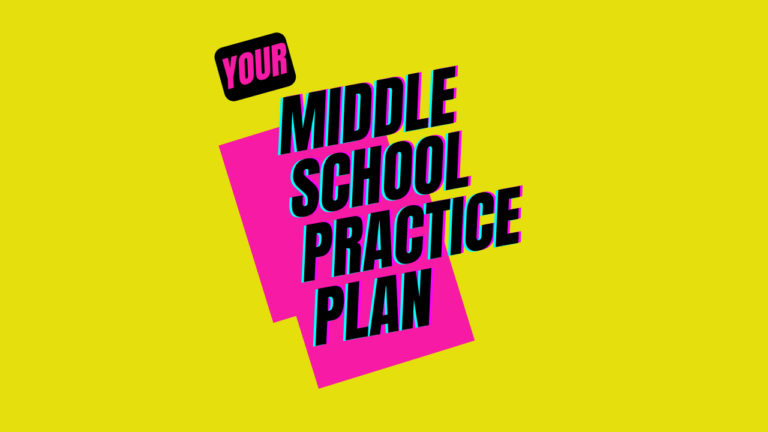Effectively Communicating With Referees
Most coaches won’t read this post because they know too much already. These coaches are the ones who also let plays and games slip away. I’ll let you be the judge of how important effectively communicating with referees is to you and your program. As for me, I know the most important games are decided by one or two baskets so I’ll continue to learn and adjust to give my team the best chance at finding success.
Are You Effectively Communicating With Referees?
Over the last several weeks, I’ve coached in and watched numerous high school basketball games and I’ve sat in the stands and watched middle school aged club and school teams play. There are certain boxes a coach needs to check off to find success. The communication box is one some coaches may have overlooked when it comes to effectively communicating with referees.
As I sat and watch I scratched my head at some of the things I saw.
Now don’t get me wrong, middle school, lower level high school, and some varsity referees have a ways to go to be good in their craft. No matter how good or bad they are coaches should still remain respectful in how they handle situations with the referees.
Like most games, I saw some good calls and some calls that I didn’t care for, but I know I don’t have the same angle as the ref. I’m also a coach more likely to address the player for missing a responsibility then I am to jump all over a referee right away.
Not every coach seems to have the same perspective as me when communicating with referees though. Some coaches let the referee know how they felt from tip-off of the game, others performed their own little temper tantrum on the sideline, one took a technical to try and prove a point, and a select few tried to be polite and cordial in as they argued their disagreement with a call.
Given the various responses I saw from coaches I thought I’d offer a few insights into effectively communicating with referees.
Effectively Communicating With Referees Is An Art
The more I paid attention to coaches and how they communicate with referees I could see the game the coach was trying to play. It was unfortunate that many of the referees were not playing the same game. This leads me to believe that effectively communicating with referees is more of an art than a science.
The only constants in a game are that there are coaches, referees players, and fans. All of the nuances that go along with each group are always moving and changing, making effective communication between the coach and the referee that much more difficult. The art of this communication calls for coaches to read the situation, the importance of the call, the momentum of the game, and the receptiveness of the official. It became apparent not all coaches are artists. It also became more apparent to me that I have a ways to go in my communication artistry as well.
Remember Your Players Will Follow Your Lead
Reacting to the official’s calls all the time will give your players the green light to react as well. I know if I complain about each call I lose focus on the game and if my players start complaining they’ll lose focus, too. This opens up the door to blaming officials for losses instead of seeing where a player or team can improve.
It’s hard to tell players to do one thing when the coach is doing the opposite. The old adage, do as I say not as I do has never really worked, but some coaches seem to subscribe to it still. If you want players to handle pressure well, you first need to show them how to handle pressure well.
Know That Referees Will Make Mistakes Too
I’ve yet to coach a perfect game and I’m certain there aren’t many referees who think they’ve officiated a perfect game. Referees are human just like you and me and they’ll make the wrong call from time to time. (The only people I know that have coached and refereed a perfect game are sitting in the stands. Ha ha!)
Referees have the tough job of making judgment calls in a split second. If you’ve ever refereed a game you know how difficult it can be to be right 100% of the time. (For this reason, I ask my players to officiate in our youth leagues so they can experience what it’s like to have the whistle.)
Every once in a while you can be surprised by a referee as well. In one of my last games, I thought my player was fouled going to the basket and as the referee stood in front of me I told him it looked like there was a foul on the last play. He responded back to me saying, “I think you’re right and I missed it.” Whoa, you don’t hear that very often. This just reinforces the referees know when they make a mistake. A calm nudge may be all they need instead of an irate scream from across the gym.
Have A Short Term Memory
While sitting in the stands I noticed that some coaches stay engaged with an official for two or three trips down the floor.
The coaches were doing exactly what I tell my players not to do; they stayed focused on the referee’s call. Instead of the coach having a short term memory and coaching their team on the other end of the floor they took themselves out of the game for a few possessions.
As an opposing coach, I’m secretly rooting for the coach to keep talking in hopes that they will continue to not coach their team or even better get themselves a technical so I can get a few easy points and another, or at least prolonged, possession.
Unless you want your team to be at a disadvantage you want to have a short term memory and continue coaching your team.
Make Adjustments To How The Referees Are Making Calls
If you’ve coached for very long you know you’ll see some of the same referees consistently in your conference and region. When you see the same referees you know they call the game a certain way. The referee may like to call things tight or maybe they let the players play through a little contact.
If you don’t know the official, you’ll get a good feel for them pretty quickly and for sure by half-time.
Make adjustments to the referees instead of just complaining about them. If the referees are calling it close with a lot of tic tac fouls tell your team to keep their hands up on defense and drive to the basket to create contact on offense to draw the foul.
Talk To the Referees Calmly Without Using “You” Statements
No one likes being told they are wrong, especially referees.
Using “you” statements is a sure-fire way to get officials upset. Instead, talk to them by using “I” statements.
Here’s an example from a varsity game I watched the other night.
The home team coach didn’t like the offensive foul that was called and let the referee know about it. When the referee came close to him the coach yelled, “You haven’t given us a call the whole game.” I glanced at the scoreboard and the fouls were 6 to 7 with his team having been called for one less foul than the opponent. The game seemed to be called pretty fair to me.
Guess what the coach did at the next timeout? Yup, he used the timeout to yell at the referee even more and had very little time to actually talk to his team. All I could do was shake my head.
The coach could have said, “I think they’re doing the same thing on the other end, could you keep an eye on it?” He would be more likely to get the referee to see things his way and who knows maybe he would have gotten a call or two.
I didn’t notice the referee making calls differently after the two confrontations with the coach, but a basic understanding of human behavior lends me to believe the referee was a little less likely to blow the whistle in the coaches favor.
The Bottom Line
Here’s the bottom line, coach. There is a time and place to talk to officials and certain officials need more talking to than others. But as I stated earlier its an art form that needs refining and practice. As you improve in your craft be sure to keep your team the main focus of your attention and the referee. I promise you and your team will find more success this way.







